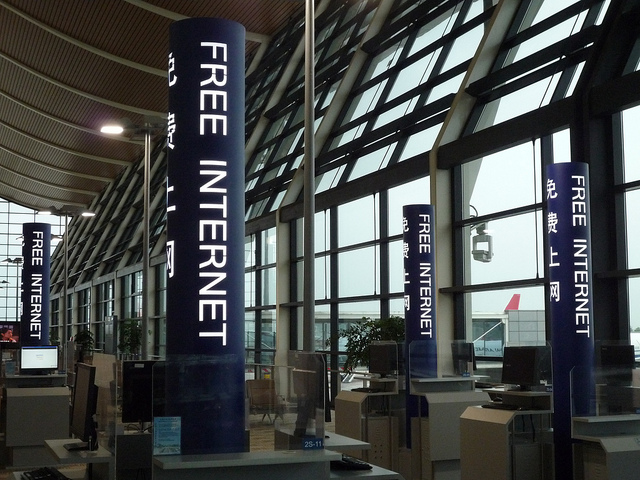
Without further Congressional action, states and localities will begin taxing Internet access as soon as December 11th. A permanent moratorium, the Permanent Internet Tax Freedom Act, has passed the House with a simple voice vote, demonstrating bipartisan agreement about the importance of a tax-free Internet. Unfortunately, Senate Democrat Leader Harry Reid has refused to introduce the bill to the Senate, preferring to hold out for a remote sales tax increase through the so-called “Marketplace Fairness Act” (MFA), a highly controversial issue. Polling shows Americans overwhelmingly oppose Reid’s scheme to tax online sales, but a large majority of Americans can get behind a permanent continuance of a tax-free Internet. Nonetheless, in a classic show of divisive politics, Harry Reid has held hostage the freedom of the Internet to pass a tax increase on Americans that buy products online or over the phone.
No American wants to pay more taxes, but taxes on access to the Internet is bad economic growth policy, not just tax policy. Here are the top four reasons why a permanent Internet tax moratorium is necessary to stop this.
1. Keeping the Internet tax free encourages online innovation and digital entrepreneurship. Online investment and tech startups would be disincentivized to the point of obscuring the open and inventive Internet we all know and love. The United States is a global tech leader due to our private development and deregulation of online ventures. A tax moratorium also promotes innovation in cost-defective expansion of broadband access. An Internet access tax would be another cost paid by customers and Internet Service Providers (ISPs) that would ultimately turn companies away from creating new developments in the tech space. Taxing Internet access would serve to hamper this industry in much the same way other great American industries (auto, manufacturing) have been hamstrung by government interference.
2. Taxing the Internet would have a harsh impact on lower income families. This is the demographic that a tax-free Internet serves to help and assist in seeking employment. Raising the cost of the Internet through a usage tax would diminish the overall number of users. A recent study predicted that a 10% increase in price can be expected to illicit a 15% reduction in adoption. This negative growth is the antithesis of a free Internet.
3. An Internet access tax would raise the costs of all Internet-related business. Whether it be the price of ISPs, the cost of running and maintaining a website, or transaction fees of e-commerce including online shopping, a usage tax would hurt all Internet users. In much the same way that rising gasoline prices are felt throughout the economy, raising the cost of using the Internet would be seen by all online participants.
4. Access taxes would be yet another permanent part of the government shakedown. If the moratorium expires, state and local governments will be able to tax access to the Internet. If the ban is allowed to expire and governments start taxing access (which they certainly would), these funds would be built into state budgets with vested interests devoted to keeping these taxes in place. As every previous tax has proven, you can’t put the toothpaste back in the tube.
Permanently extending the Internet Tax Freedom Act is a crucial step in safeguarding long-term American Internet prosperity and continued online growth. Americans for Tax Reform, Digital Liberty, and supporters of Internet freedom throughout the country endorse a permanent moratorium on Internet access taxes.

